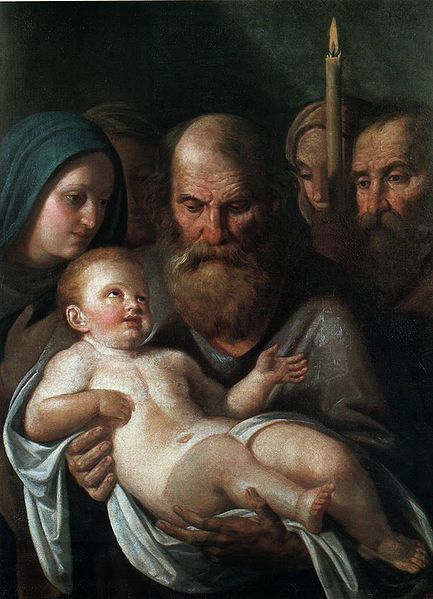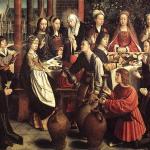
Dr. Robert A. J. Gagnon (see his Facebook page; public posts) is a Visiting Scholar in Biblical Studies at Wesley Biblical Seminary; formerly Professor of Biblical Studies at Houston Christian University and Associate Professor of New Testament at Pittsburgh Theological Seminary. He obtained a Master of Theological Studies (MTS): Biblical Studies degree from Harvard Divinity School and a (Ph.D.) in New Testament Studies, magna cum laude, from Princeton Theological Seminary. Dr. Gagnon grew up Catholic, and he wrote on 8-17-24:
I didn’t find Christ in Catholicism . . . I lost the forest (the big picture of Christ) for a lot of unnecessary trees that were not scripturally grounded. Part of this . . . was due to some non-scriptural and even (in some cases) anti-scriptural doctrines that undermine the role and significance of Christ. I would love to come back to a purified Catholicism more in keeping with a biblical witness. The excessive adulation of Mary, which at times seems to me to come close to elevating her to the godhead (like a replacement consort for Yahweh in lieu of Asherah), is one such obstacle.
After I had made five in-depth responses to him, Dr. Gagnon replied (just for the record) in a thread on another Facebook page, on 9-17-24, underneath my links to all five: “like your other one, it is an amateurish piece.” This is his silly and arrogant way (one of many such potshots) of dismissing my critiques in one fell swoop. I had informed him that I had over twenty “officially published books” [22, to be exact] and yet he replied that he didn’t know “whether” they were “self-published or with a vanity press or a reputable press.”
This is my eighth reply to Dr. Gagnon (see them listed under his name on my Anti-Catholicism page): seven of them having to do with the Blessed Virgin Mary. He has responded once thus far.
His words will be in blue. I use RSV for biblical citations.
*****
Dr. Gagnon’s blasphemous rant in this public Facebook post dated 9-19-24, (in Scripture, one can blaspheme persons and holy things beyond only God) proves, almost better than anything I have ever seen, that the anti-Marianism of those who vigorously contend against the Catholic Church — with abundant insults, is too often not just a matter of an emotionless, objective opposing of what they perceive as “excesses” beyond the explicit biblical account.
To the contrary; here and in the treatments of many other Protestants, we sadly observe a truly irrational — almost merely carnal or “unspiritual” (see 1 Cor 2:10-16) — hostility and prejudice towards the Blessed Virgin Mary. No doubt is is to a large extent, in pitiful overreaction to our great devotion to and love for her, and it blatantly contradicts what we absolutely do know from Holy Scripture. Here is what he wrote (I have highlighted in green and italics and bolding the words “believe” and “faith”):
There is no clear indication of Mary coming to faith in Christ. It is not said that she “believed in Jesus,” nor that she gave any testimony that caused others to believe in him. Yes, Mary has faith to believe that Jesus can turn water into wine (2:3, 5), but that is no more than shallow sign faith from the perspective of the Fourth Evangelist. Remember that there is no virgin birth story in John’s Gospel. In the Prologue’s treatment of the incarnation of the Logos, Mary is left completely out of the picture. So there is no story preceding 2:1-12 that would give the reader any expectation of Mary’s positive significance. The story presumes only that “the mother of Jesus” (note that the Fourth Evangelist never even uses her proper name) [he never refers to his own name, either; using, rather, the “disciple whom Jesus loved” (13:23; 20:2; 21:7, 20). This is his style. Gagnon himself refers several times to “the beloved disciple” in this same piece] believes that Jesus can do miracles. She persists in that belief after Jesus’ rebuke in 2:4 when she says to the waiters “whatever he says to you, do” (2:5). But that command by Mary, even if more open-ended, does not indicate deep sign faith, but continues only with a faith that believes Jesus can accomplish the mundane task of changing water to wine. Mary thereafter is no longer mentioned in the story. . . .
One could contend, I suppose, that there was no reason to report that Mary also “believed in him” because she already did. The problem with that view is that Jesus’ statement in 2:4 indicates that whatever kind of faith she had prior to his statement was shallow sign faith, faith to believe that Jesus could provide for earthly needs but nothing more. Mary’s response in 2:5 also seems to persist with the same kind of faith that she had before the rebuke. And, again, there is no statement of greater transformation at the end of the story, unlike the stories of the Samaritan woman and the royal official in ch. 4. She is not even mentioned in the story after 2:5.
She appears to be more like Nicodemus in ch. 3 than the Samaritan woman and the royal official in ch. 4. Nicodemus remains in shallow sign faith from start to finish of the Gospel. . . .
Jesus’ mother is mute in 19:25-27 [while she is watching her Son being horribly tortured to death]. There is no expression of faith coming from her. . . .
“Please Hit ‘Subscribe’”! If you have received benefit from this or any of my other 4,800+ articles, please follow my blog by signing up (with your email address) on the sidebar to the right (you may have to scroll down a bit), above where there is an icon bar, “Sign Me Up!”: to receive notice when I post a new blog article. This is the equivalent of subscribing to a YouTube channel. My blog was rated #1 for Christian sites by leading AI tool, ChatGPT: endorsed by influential Protestant blogger Adrian Warnock. Please also consider following me on Twitter / X and purchasing one or more of my 55 books. All of this helps me get more exposure, and (however little!) more income for my full-time apologetics work. Thanks so much and happy reading!
***
Imagine thinking that the Blessed Virgin Mary: whom the angel Gabriel called “full of grace” (yes he did; there are failed arguments about that bandied about as well, that I have addressed), and who was “blessed among women”; whom all generations would call “blessed”; the Mother of God, who spent some thirty years with Jesus before anyone else knew about Him; i.e., ten times longer than anyone else, is not even a believer in Jesus??!! Gagnon would have us believe that God (Who knows everything, including the future) would choose a woman to be the Mother of God who wouldn’t even understand, let alone believe, what the angel Gabriel told her at the Annunciation, and who wouldn’t comprehend or believe Who Jesus was over His entire life?!
We’re to think that is supposedly a plausible conclusion that makes any sense at all? In fact, the biblical account in this regard that I will present below (all of which Gagnon totally ignores in his pathetic litany of “disproofs”) is very clear: so much so that I submit it could hardly be any more so. The angel Gabriel told Mary at the Annunciation:
Luke 1:30-33 . . . “Do not be afraid, Mary, for you have found favor with God. [31] And behold, you will conceive in your womb and bear a son, and you shall call his name Jesus. [32] He will be great, and will be called the Son of the Most High; and the Lord God will give to him the throne of his father David, [33] and he will reign over the house of Jacob for ever; and of his kingdom there will be no end.” [34] And Mary said to the angel, “How shall this be, since I have no husband?” [35] And the angel said to her, “The Holy Spirit will come upon you, and the power of the Most High will overshadow you; therefore the child to be born will be called holy, the Son of God.
Any Jew who knew anything at all would know that this was clearly the Messiah Whom she was to bear, and the “Son of God” language, which the Pharisees took to be blasphemy because they understood that it meant being equal to God the Father (Jn 5 and 10), also indicates His divinity and Godhood.
Her cousin Elizabeth proclaimed, “Blessed are you among women, and blessed is the fruit of your womb! And why is this granted me, that the mother of my Lord should come to me?” (Lk 1:42-43). Mary (as far as we know from the text) doesn’t rebuke this, or ask, “what are you talking about?!” She accepts it as truth. She believes in the “Lord” Who is her Son. Mary’s “Magnificat” (Lk 1:46-55) shows that Mary is well-acquainted with Old Testament theology and expression. In fact, it is “based largely on Hannah’s prayer in 1 Sam. 2.1-10”: as the notes in my RSV observe. She knew enough to have certainly understood the messianic allusions in Gabriel’s and Elizabeth’s words to her.
Mary may have been present at John the Baptist’s circumcision (Lk 1:59 ff.) since Elizabeth was her cousin and she knew her well (e.g., she stayed with her for three months: Lk 1:56). If so, on that occasion, John’s father Zechariah “was filled with the Holy Spirit, and prophesied” (Lk 1:67), saying,
Luke 1:76-79 And you, child, will be called the prophet of the Most High; for you will go before the Lord to prepare his ways, [77] to give knowledge of salvation to his people in the forgiveness of their sins, [78] through the tender mercy of our God, when the day shall dawn upon us from on high [79] to give light to those who sit in darkness and in the shadow of death, to guide our feet into the way of peace.”
This is referring to the same “Lord” (Jesus) Whom his wife Elizabeth told Mary she was the mother of (1:43). Then when they presented Jesus in Jerusalem in the purification rite, Mary and Joseph encountered Simeon:
Luke 2:25-35 Now there was a man in Jerusalem, whose name was Simeon, and this man was righteous and devout, looking for the consolation of Israel, and the Holy Spirit was upon him. [26] And it had been revealed to him by the Holy Spirit that he should not see death before he had seen the Lord’s Christ. [27] And inspired by the Spirit he came into the temple; and when the parents brought in the child Jesus, to do for him according to the custom of the law, [28] he took him up in his arms and blessed God and said, [29] “Lord, now lettest thou thy servant depart in peace, according to thy word; [30] for mine eyes have seen thy salvation [31] which thou hast prepared in the presence of all peoples, [32] a light for revelation to the Gentiles, and for glory to thy people Israel.” [33] And his father and his mother marveled at what was said about him; [34] and Simeon blessed them and said to Mary his mother, “Behold, this child is set for the fall and rising of many in Israel, and for a sign that is spoken against [35] (and a sword will pierce through your own soul also), that thoughts out of many hearts may be revealed.”
This is pure messianic language as well. Mary and Joseph “marveled” at it. I suppose Dr. Gagnon in his anti-Mary zeal, would immediately think this was oppositional astonishment and disbelief, but that doesn’t follow. They were, I think, simply amazed that the man knew these things that they already knew about Jesus.
Furthermore, Mary might have been present at Jesus’ baptism (or heard about it), in which God the Father spoke from heaven: “Thou art my beloved Son; with thee I am well pleased.” (Lk 3:22). An “angel of the Lord” told Joseph in a dream Who Jesus was (“. . . that which is conceived in her is of the Holy Spirit; she will bear a son, and you shall call his name Jesus, for he will save his people from their sins.”: Mt 1:20-21). Would Joseph not have shared the content of that dream with Mary? Then they either believed it or not. Angels told both Mary and Joseph Who Jesus was. Elizabeth, Zechariah, and Simeon all confirmed it while Jesus was still very young.
We have one more piece of strong evidence: the three wise men visited Jesus, with Mary present (thought to be when He was about two years old). The text says, “going into the house they saw the child with Mary his mother, and they fell down and worshiped him” (Mt 2:11). Again, we see no protest from Mary along the lines of, “what are you doing?! You can’t worship a mere man!”
We have all of this explicit data, yet we are to believe Dr. Gagnon’s blasphemous view that Mary believed none of it, and wasn’t a “believer” in Jesus? (“There is no clear indication of Mary coming to faith in Christ.”). If you believe that, come see me. I have some oceanfront property in Kansas to sell you.
Photo credit: Simeon the Righteous (1830s-1840s), by Alexey Yegorov (c. 1776-1851) [public domain / Wikimedia Commons]
Summary: NT scholar Robert Gagnon remarkably thinks that Mary wasn’t a believer in Jesus, through His entire life. I detail lots of Scripture that proves otherwise (all ignored by him).













